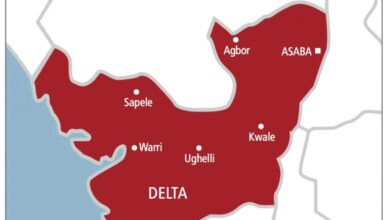Strategic guide to property acquisition for the diaspora in Ghana (2025 – 2026)


The ‘Year of Return‘ and the subsequent ‘Beyond the Return‘ initiatives have successfully positioned Ghana as a key destination for the Global African family. This has catalysed significant interest and investment, particularly within the real estate sector.
While these campaigns have fostered a welcoming environment, investors must understand the legal and financial landscape to ensure secure, long-term asset ownership.
This guide provides a definitive analysis of how to leverage policy for secure property acquisition, focusing on the critical interplay between legal status, property rights, and risk mitigation.
Key Takeaways for Diaspora Investors
- Your Legal Status is Everything: The single most important factor is the distinction between a citizen and a non-citizen.
- Citizenship Unlocks Value: Ghanaian citizens are entitled to a 50-year leasehold.
- Non-Citizen Restriction: Non-citizens, including those with a “Right of Abode,” are constitutionally restricted to a 50-year leasehold.
- Legislative Improvements: The Land Act 2020 is the primary mechanism for simplifying and securing investments by criminalising land guards and introducing electronic conveyancing.
- Due Diligence is Non-Negotiable: Strict adherence to a formal verification and registration process is mandatory to prevent disputes.
The Critical Link: Legal Status and Property Rights
The most important factor governing property investment in Ghana is the legal distinction between a citizen and a non-citizen. This status directly dictates the maximum permissible land tenure and, consequently, the long-term value and security of your asset.
Under Ghana’s constitution, non-citizens are restricted to a 50-year leasehold.
This distinction also extends to finances, as tax differentials on rental income heavily favour residents. Therefore, maximising tenure security and financial returns necessitates the strategic pursuit of full Ghanaian Citizenship or formal long-term residency.
Understanding Your Legal Pathway
For any long-term property investment, an applicant’s legal status is the single most important factor. There are three primary pathways to consider, each with different implications for property ownership.
Pathway 1: Standard Residence Permits
These permits are tied to a specific purpose, such as employment, study, or business. Holders of this permit are legally classified as non-citizens and are subject to the 50-year property lease limitation.
Pathway 2: The Right of Abode
This is a form of indefinite residence status specifically conferred upon individuals of African descent in the diaspora. This status is a significant advantage, granting the right to live and work in Ghana indefinitely without a visa or additional work permits.
However, it is crucial to understand that the Right of Abode is an immigration status, not full citizenship. Legally, the holder is still a non-citizen and thus remains subject to the 50-year lease restriction.
Pathway 3: Ghanaian Citizenship
This is the only pathway for diaspora investors to access the superior 50-year leasehold tenure and the more favourable resident tax advantages. This can be acquired by descent (for those with documented Ghanaian parentage) or through registration and naturalisation (which typically requires residing in the country for at least five years).
Ghana’s Land Tenure System Explained
Ghana operates primarily under a leasehold system. Freehold ownership, which grants absolute and indefinite control, is generally not available for public acquisition.
In practice, you are permitted to fully own a built property, such as a house or apartment, but the underlying land is always subject to the leasehold system.
Leasehold properties are secure, transferable, and renewable investments, provided they are properly documented. The primary difference is the duration: 50years for citizens and 50 years for non-citizens. This 50-year limit for non-citizens means the investment requires renewal negotiations and associated costs twice as frequently as a citizen-held asset.
How the Land Act 2020 Protects Your Investment
The perception of “simplified property acquisition” is not an elimination of due diligence. The most significant simplification mechanism is the Land Act 2020 (Act 1036), a legislative effort to enhance tenure security and streamline the process.
This Act directly addresses historical systemic challenges in three key ways:
- Criminalisation of Land Guards: It explicitly criminalises the activities of “land guards,” with offenders facing severe penalties ranging from 5 to 15 years in prison. This measure drastically improves the physical security of land investments.
- Electronic Conveyancing: The Act introduces electronic conveyancing. This reform is designed to expedite the registration process and significantly minimise opportunities for documentation fraud and duplicate titles.
- Improved Record Keeping: The establishment of Customary Land Secretariats formalises record-keeping for transactions governed by traditional authorities. This strengthens the validity of ownership and provides a clearer path for due diligence.
A Mandatory 6-Step Due Diligence Process
Acquisition of property in Ghana requires meticulous due diligence. To mitigate the inherent risks associated with title conflicts, the following six steps are mandatory for any serious investor:
- Engage Specialised Legal Counsel: You must engage a lawyer specialising in Ghanaian land law to conduct comprehensive due diligence and review leasehold contracts.
- Verify at the Lands Commission: Before any payment is finalised, the legal status of the land and the identity of the rightful owner must be confirmed at the Lands Commission.
- Hire a Certified Surveyor: A certified surveyor must be hired to accurately measure and officially demarcate the exact boundaries of the land to prevent future encroachment disputes.
- Formalise All Agreements: All agreements must be formalised. Verbal agreements or transactions lacking full, verifiable documentation should be strictly avoided.
- Register Immediately: Immediately after the agreement, the land lease and title transfer documents must be filed and registered at the Lands Commission in the buyer’s name.
- Secure and Demarcate the Land: Due to the history of tenure disputes, physical security measures, such as fencing or walling, are advised immediately after registration to clearly demarcate the property boundaries.
Navigating Disputes and Final Recommendations
The Land Act 2020 also introduced a crucial procedural safeguard for managing conflicts. It mandates that parties involved in land disputes must first exhaust all procedures under the Alternative Dispute Resolution (ADR) Act before proceeding to litigation. This creates a specialised, accelerated resolution pipeline, de-risking the investment.
In conclusion, while Ghana’s initiatives have created a welcoming environment, secure property acquisition hinges on two core principles: achieving the correct legal status (preferably citizenship) to secure the maximum 50-year tenure, and executing a mandatory, non-negotiable due diligence process to ensure your title is secure and defensible.
DISCLAIMER: The Views, Comments, Opinions, Contributions and Statements made by Readers and Contributors on this platform do not necessarily represent the views or policy of Multimedia Group Limited.
DISCLAIMER: The Views, Comments, Opinions, Contributions and Statements made by Readers and Contributors on this platform do not necessarily represent the views or policy of Multimedia Group Limited.
Source link




